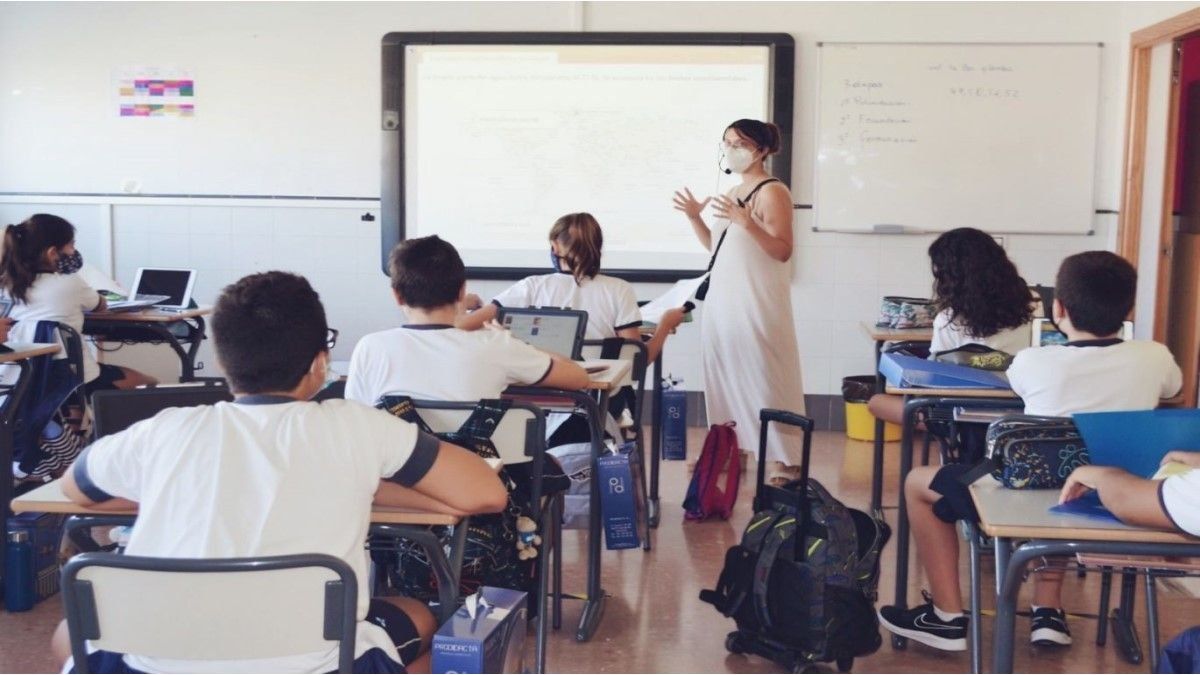The Senate of Mendoza gave him a half penalty for unanimity to the bill that seeks to implement a Clean Record system in the educational field, with the objective of “strengthen the protection of girls, boys and adolescents in school institutions by prohibiting the entry or stay of people with criminal records related to serious crimes.”
The initiative was submitted to the Legislature by the government of Alfredo Cornejo and now it must be dealt with by the deputies, who will define its definitive sanction or if it returns to the Chamber of origin to incorporate modifications.
Clean educational record project advances in Mendoza
During the debate, the president of the Senate Education Committee, Mariana Zlobecexplained that the project prohibits people with criminal records for serious crimes, such as those committed against sexual integrity, freedom, identity or embezzlement of public funds, from holding positions as teachers, guards or administrative staff.
In addition, it seeks to guarantee that educational institutions are safe and reliable spaces by creating a registry of disqualifications that will be under the management of the General Directorate of Schools. This registry will make it possible to reinforce transparency in the selection processes and strengthen the commitment of the educational system to the safety of students.
Then the senator Martin Rostandfrom La Unión Mendocina, expressed his block’s support for the project, highlighting that this measure seeks to reinforce social trust in the educational system and guarantee adequate coexistence in school institutions. However, he pointed out the importance of safeguarding the principle of presumption of innocence, expressing reservations about possible conflicts in this regard.
Mendoza Senate.jpg
The educational Clean Record project obtained half a sanction in the Senate of Mendoza.
From the Justicialist Bloc, the senator Adriana Cano He also expressed his support for the project, highlighting the need to address a recurring problem in public and private schools in the province. NHowever, it was considered necessary to improve some technical aspects of the text to avoid future judicialization that could hinder its implementation.
The debate closed with the intervention of the senator Natacha Eisenchlaswho highlighted the work carried out to incorporate corrections and modifications to the project. He maintained that possible erroneous interpretations or unwanted effects have been contemplated in the final wording and asked the president of the Senate to move forward with the vote.
Let us remember that the proposal that was presented in Commissions by the Minister of Education, Children, Culture and the General Directorate of Schools (DGE), Tadeo García Zalazarproposes to incorporate into the Teacher’s Statute, the Guardian’s Statute and the administrative staff regulations specific requirements that ensure that no professional with convictions for crimes against sexual integrity, freedom or identity can access positions in the educational system.
As explained by the Minister, this initiative is inspired by the concept of a clean record, already in force in the provincial electoral system and recently adopted by other jurisdictions such as the province of Salta. The project not only contemplates the creation of a public registry of criminal records, but also introduces modifications to the selection procedures to guarantee that each candidate is rigorously evaluated before entering the educational system.
Antecedent
The proposal includes specific measures for privately managed schools, forcing them to adhere to these regulations, and establishes more severe sanctions for those who commit this type of crime, such as permanent disqualification. These provisions seek to standardize protection standards throughout the educational system of Mendoza.
The Chief of Staff of the Ministry of Education, Daniela Garciaexplained that the project has as a precedent the National Education Law 26,206, which invites the provinces to adopt measures to guarantee the safety and integrity of Girls, Boys and Adolescents. He also mentioned that the Law for the Comprehensive Protection of Girls, Boys and Adolescents reinforces this need, establishing the right of minors to a safe environment in the educational field.
Within the framework of the project, a single registry of summaries, sanctions and disqualifications is introduced. This registry will be used as a mandatory consultation tool for competitions for positions in educational institutions, particularly in cases of substitution which, according to the Minister, are those that have historically presented the greatest inconveniences.
In addition, the initiative stipulates that to enter the educational system it will be essential to present a criminal record certificate. This includes teachers, guards and administrative staff, ensuring that those who hold these positions do not have a criminal record for crimes against sexual integrity, freedom or identity.
Source: Ambito
I’m a recent graduate of the University of Missouri with a degree in journalism. I started working as a news reporter for 24 Hours World about two years ago, and I’ve been writing articles ever since. My main focus is automotive news, but I’ve also written about politics, lifestyle, and entertainment.




